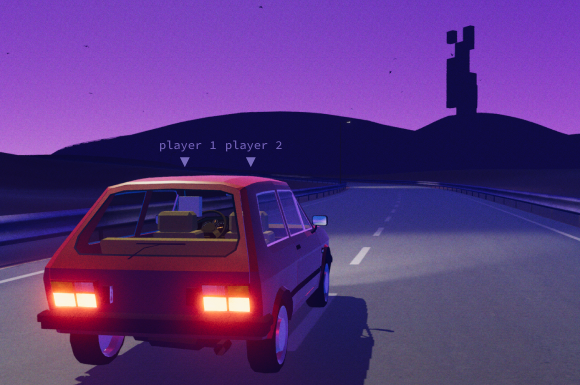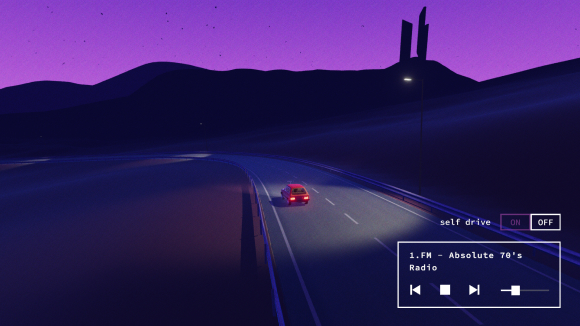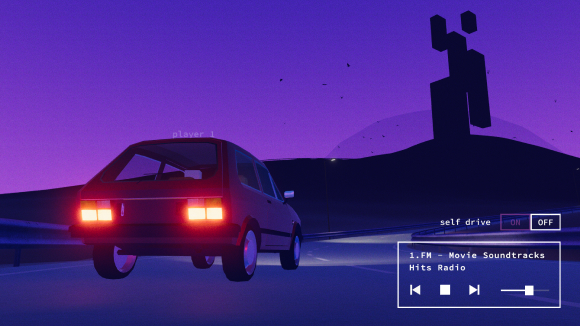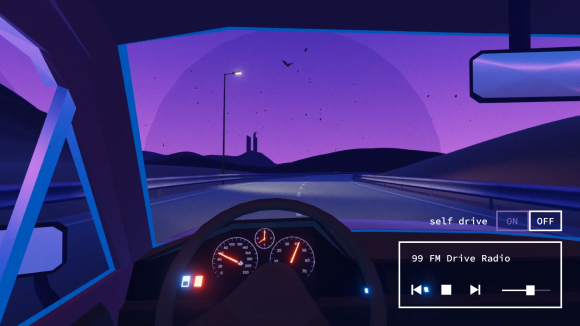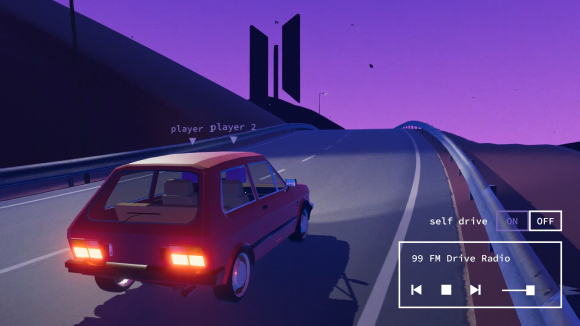Yugo: the non-game
Yugo: the non-game is a virtual space where you can drive a car, listen to the radio, and invite people to talk and share the experience with. It is meant to be a space to allow long conversations and hangouts that are often harder to come by when communicating digitally. It is a non-gamification of common voice chat sessions between people playing a game. It is a game for non-gamers.
The idea developed during the months of lockdown and restrictions of social gatherings due to the COVID-19 pandemic in early 2020. It had become common that the majority of social interactions would happen via computers, thus the limitations of digital communication, compared to face-to-face conversations, became overwhelmingly apparent. Limitations like the absence of nonverbal communication in text and voice messaging.
Even live video chat, which could contain more nonverbal communication, does not compare to face-to-face levels of affinity. One more absence during the “Skype” conversations, at least from personal experience, was the social presence and those extended hangouts, common in the face-to-face counterparts. Hangouts with periodical conversations when the participants don’t necessarily speak over one particular topic but can allow for long pauses, silence, and continue to do things together separately.
Social interactions in online video game better resembled this specific type of communication. Online game sessions typically last longer than a usual video calls and often allow for down-time in-between where hangouts with off-topic, but essential communication happen. However, online games often have complex mechanics with steep learning curves, acting as barrier for non-gamers to join and enjoy those sessions. Even between gamers, those down-times don’t last forever and at some point, the real game begins, leaving no room for unrelated communication.
Yugo tries to facilitate these kinds of hangouts, without complex mechanics that need to be learnt. It provides just enough activity that acts as mediator in such communication. But not so much that it distracts from the main focus, namely the conversation. When a player starts a session, they are the car driver, and each person that joins is seated in one of the other three passenger seats. They are automatically connected via voice chat. The radios stations are real-life internet radio streams and several of them are available in the game world. They have a certain range where you can tune in to them, and players can drive around discovering new stations.
The environment, while it is abstracted and contextless, still contains elements of a certain time and region. The serpentine roads in the game are inspired by the mountainous roads and highways going from Kosovo to Montenegro. The car is modeled after Yugo, an iconic car produced in Yugoslavia in the 1980s’. The time of the day in-game is reminiscent of dusks in Kosovo, mostly because of the omnipresence of crows and the sounds they make at evening flying back to their nests for the night. They are an inevitable part of the soundscape of cities there. Similarly reminiscent of that region are also the massive monolithic-like objects situated on top of hills, inspired by Socialist-era Yugoslavian monuments in Kosovo and the rest ex-Yugoslavia. Aside from the significance they have for the area and people there, they have a striking visual appearance that blur the time and place perceptions.
The non-game is now available at https://petrithxha.itch.io/yugo
